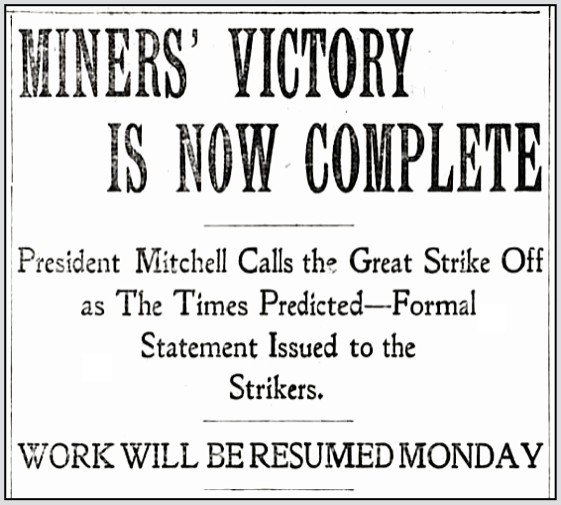 —————
—————
Hellraisers Journal – Sunday November 16, 1902
Mother Jones News Round-Up for October 1902, Part II
Found Describing Miner’s Sorrow; Assist Efforts to Settle Anthracite Strike
From the Duluth Labor World of October 11, 1902:
[Mother Jones stated:]
If Christ came to America, took advantage of the best university education the country affords, then went into the anthracite and West Virginia mining regions he never would be able to write a book which could properly convey to the minds of its readers the horrors that surround the lives of miners. The human tongue cannot tell of the miseries that blast the lives of those who earn a living in the bowels of the earth, nor of the sufferings of their unfortunate wives and children. My hair is white and I am burdened with the weight of many years, but while I have strength enough left to use my voice it will be lifted in behalf of those miners whose lives have been ruined and who have been made slaves through the avarice of those who not only believe but declare boldly they have a divine right to the earth and the fullness thereof.
A woman of small stature, credited with having spent three-score years and ten on earth, spoke as above. Her hair is white, but her form is erect. Fire flashed from her eyes and her voice trembled with emotion as she told of her experiences with the miners. “
[She further said:]
I have spent years with them. I have lived in their homes, have partaken of their scant, coarse fare, have wept with them by the deathbeds of their loved ones, have shared their sorrows, but alas, I cannot say that I ever rejoiced with them. Joy is unknown in the mining regions of West Virginia, as far as the miners and their unfortunate families are concerned.
The speaker was “Mother” Jones, the idol of the miners, who have spent the greater part of her life in an effort to organize them and improve their conditions. She is lecturing in several towns on the conditions of the miners in the anthracite regions of Pennsylvania and in West Virginia.
Any reference to West Virginia roused the champion of the miners.
When asked “How do the miners get along in West Virginia? She answered:
How do they live? they don’t live-they exist. Harriet Beecher Stowe never drew a picture of slavery that compares with the conditions of the miners in West Virginia. The wage slavery of that state is the blackest page in American history. I tell you, you people in the north can’t realize the amount of human misery that exists among the unfortunates with whom I have made my home for years.
“How are the miners housed?” she was asked. “
[She cried:]
Housed? Housed, did you say? Why, cattle may have decent roofs over them, but the shacks they call homes among the mines of West Virginia would not be tolerated in the worst sections of your city. They are are not houses—they consist of six boards, a bundle of shingles and half a pound of nails. Such are the homes the West Virginia miners when they are working, but many of them at present have only heaven for a roof and the ground for a pillow.
The coal operators do not propose to let the strikers indulge in the luxury of a board roof, and men, woman and children have been driven out to die on the mountain sides. At Piney Ridge three weeks ago I saw a mother with her babe, 6 months old thrown out of the shack called home by the officers of the law. An old, gray headed grandmother was thrown out with them.
The feeble old grandmother took the babe on her lap and with tears streaming down her cheeks said: “My poor babe, how soon they have begun to persecute you!”
Three hours later the babe died under God’s sunlight. I could recite hundreds of cases just as bad as this. They thought they would break their spirits when they threw them out of the shacks, but the woman and children in many cases have been given shelter in barns and the men can live on the mountain sides until the fight is won.
[She continued:]
The children are the worst sufferers, and their sufferings prompt some of the strikers to seek employment elsewhere. Just as I started for Iowa one of the strikers came to me and said: “Mother, I would like to stay and fight, but I’ve got twins 4 months old and I’m afraid I’ll have to go and get work some other place so can buy malted milk for them or they’ll die.” I said: “You stay here, Jack, and fight and when I get to Iowa I’ll sell books and get the money which I will send to you and you can buy malted milk for the babes.” Tears ran down the cheeks of the poor fellow as he grasped my hand and said: “If you’ll do that mother, I’ll stay and fight to the end. T’hey can’t lick us.”
The miners will win. They have come to the conclusion that they might as well starve striking as working and they will stick to the last.
[Photograph added.]

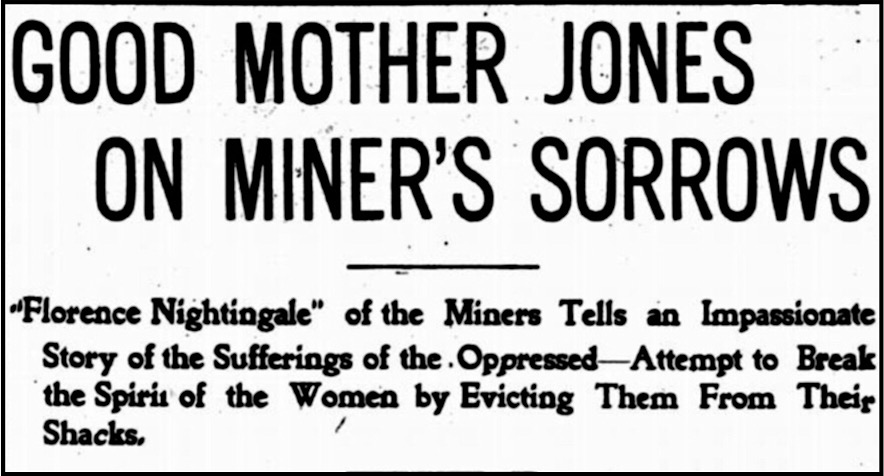
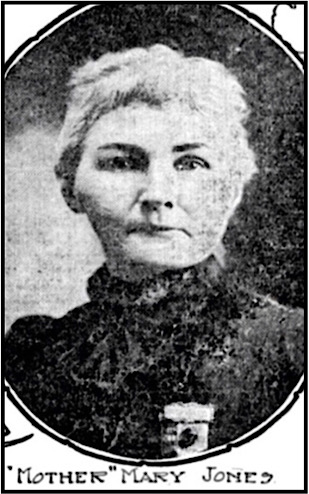
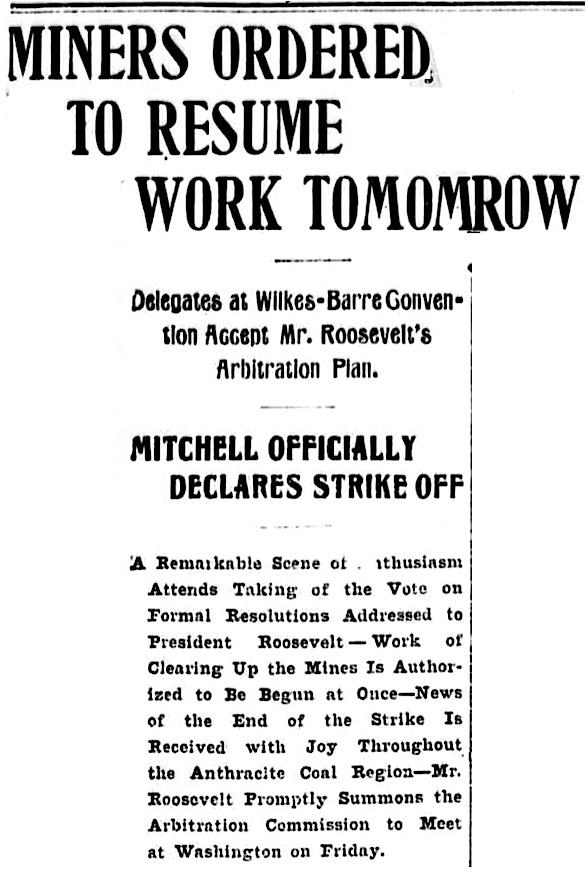
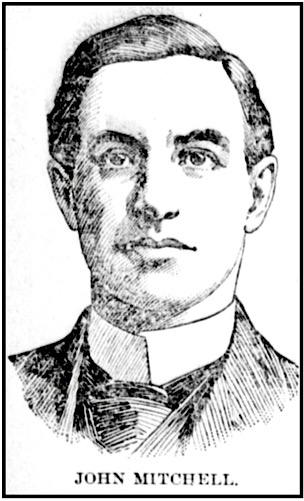
 ———-
———-